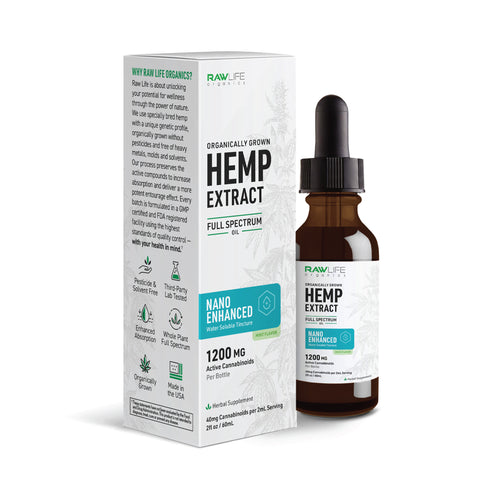

1. Chronic Pain Relief: Unlocking the Power of CBD
At the core of CBD's popularity is its profound impact on chronic pain relief. The interaction between CBD and the body's endocannabinoid system has been a focal point of numerous studies, showcasing its potential to alleviate pain associated with conditions like arthritis, multiple sclerosis, and neuropathic pain. For those seeking an alternative to traditional medications, CBD products, ranging from tinctures to topicals, present promising results in managing chronic pain.
The endocannabinoid system (ECS), a complex network of receptors and signaling molecules scattered throughout the body, acts as a conductor orchestrating various physiological processes. CBD, a cannabinoid derived from the cannabis plant, interacts harmoniously with this system, initiating a cascade of responses that holds the promise of profound relief from chronic pain.
2. The Endocannabinoid System: A Symphony of Healing
To comprehend CBD's efficacy in pain relief, understanding the endocannabinoid system is paramount. This complex network of cannabinoid receptors, found throughout the human body, plays a crucial role in regulating various physiological processes, including pain perception, immune response, and mood. CBD's interaction with these receptors triggers a cascade of responses that contribute to the entourage effect—a synergy that enhances the therapeutic benefits of CBD and other cannabinoids.
The endocannabinoid system is not a single entity but a sophisticated web of receptors, enzymes, and endocannabinoids—the body's innate cannabinoids. Two primary types of receptors, CB1 and CB2, serve as the principal players in this symphony. CB1 receptors predominantly inhabit the central nervous system, while CB2 receptors are predominantly found in the peripheral tissues, particularly in immune cells. Together, they form the backbone of the ECS, each note resonating with a specific role in maintaining balance and homeostasis.
3. CBD Products: Navigating the Spectrum
CBD products come in various forms, each tailored to specific needs and preferences. From full-spectrum hemp extracts containing a range of cannabinoids and terpenes to CBD isolates offering pure cannabidiol, the market is diverse. The choice between CBD oil, capsules, or topicals depends on factors like the desired effects, delivery method, and individual health conditions.
Full-spectrum hemp extracts stand as a testament to the richness of the cannabis plant's therapeutic symphony. In this composition, a harmonious interplay of cannabinoids and terpenes converges to create an ensemble effect greater than the sum of its parts—the entourage effect. CBD takes center stage alongside a supporting cast of cannabinoids like THC, CBG, and CBN, as well as an array of terpenes. This comprehensive blend not only amplifies the potential therapeutic benefits but also offers a holistic and balanced approach to well-being.
4. Dosage Matters: Finding the Sweet Spot
Determining the right dosage of CBD is a nuanced process, influenced by factors such as body weight, the severity of the condition, and individual responses. CBD products often indicate the amount of CBD in milligrams (mg). Start with a low dosage and gradually increase until the desired effects are achieved. Consultation with a healthcare professional ensures safe and effective CBD use, especially when considering interactions with prescription medications.
CBD products, adorned with labels indicating the concentration of CBD in milligrams (mg), beckon individuals to embark on a personalized exploration. Like a skilled choreographer, users are encouraged to commence this dance cautiously, starting with a low dosage and gradually adjusting until they find the sweet spot—the point at which the desired effects harmonize with individual well-being.
5. The Role of Carrier Oils: Maximizing Absorption
Carrier oils play a pivotal role in CBD products, enhancing the absorption of CBD into the bloodstream. Common carrier oils include MCT oil (derived from coconut oil), hemp seed oil, and olive oil. MCT oil, with its high bioavailability, is particularly popular for delivering CBD efficiently. Understanding the role of carrier oils is integral to optimizing the benefits of CBD and ensuring the full potential of this powerful compound is realized.
MCT oil, derived from coconut oil, stands as the virtuoso among carrier oils, renowned for its exceptional bioavailability. This term refers to the body's ability to absorb and utilize a substance efficiently. MCTs, or medium-chain triglycerides, are easily digestible and quickly metabolized, facilitating the swift and effective absorption of CBD. This rapid uptake ensures that individuals experience the desired effects of CBD without unnecessary delays, creating a seamless and efficient delivery system.
6. Hemp vs. Cannabis: Navigating the Terminology
Clarifying the distinction between hemp and cannabis is crucial in understanding CBD. While both are varieties of the Cannabis sativa plant, hemp contains negligible amounts of THC, the psychoactive compound responsible for the "high" associated with cannabis. The Farm Bill legalized the cultivation and sale of hemp-derived CBD, adhering to state laws that regulate its production and distribution.
7. Full Spectrum vs. Isolate: Unveiling the Spectrum of Healing
Full spectrum CBD harnesses the power of the entire hemp plant, incorporating a range of cannabinoids and terpenes. This synergy results in the entourage effect, amplifying the therapeutic benefits. Conversely, CBD isolate contains pure cannabidiol, devoid of other cannabinoids. Choosing between full spectrum and isolate depends on individual preferences and the specific goals of CBD use.
8. CBD Oil and Mental Health: A Balancing Act
Beyond chronic pain, CBD has garnered attention for its potential impact on mental health. Anxiety disorders, post-traumatic stress disorder (PTSD), and depression are areas where CBD shows promise. CBD's interaction with serotonin receptors in the central nervous system contributes to its anxiolytic and antidepressant effects, offering a natural alternative to traditional medications.
9. Neurological Disorders: Navigating New Avenues
CBD's influence extends to neurological disorders, showcasing potential benefits for conditions like Parkinson's disease and Dravet syndrome. The neuroprotective properties of CBD, as evidenced in human studies and clinical trials, open new avenues for managing these challenging conditions and improving the quality of life for affected individuals.
10. Heart Health and High Blood Pressure: Exploring the Connection
The potential benefits of CBD also extend to heart health. Studies indicate that CBD may contribute to reducing high blood pressure, offering a natural approach to cardiovascular well-being. As a supplemental dietary product, CBD holds promise in supporting overall heart health.
11. CBD and Inflammation: A Soothing Symphony
CBD's anti-inflammatory properties make it a promising candidate for conditions marked by excessive inflammation, such as rheumatoid arthritis. By modulating the immune response, CBD presents an alternative avenue for managing inflammation more effectively than traditional medications.
12. Privacy Policy and State Laws: Navigating Legal Terrain
Amidst the excitement surrounding CBD, understanding privacy policies and adhering to state laws is essential. The legal landscape regarding CBD products varies, with state laws dictating the cultivation, sale, and usage of CBD. Staying informed about local regulations ensures compliance and a seamless CBD experience.
13. Side Effects and Adverse Reactions: Balancing the Equation
While CBD is generally well-tolerated, awareness of potential side effects is crucial. Factors like the dosage, individual responses, and interactions with prescription medications can influence the occurrence of adverse reactions. Consulting with a healthcare professional before incorporating CBD into one's wellness routine is prudent.
14. CBD Tinctures: Precision in Dosage
CBD tinctures, characterized by their liquid form, offer precision in dosage and ease of administration. Measured in drops, these tinctures allow individuals to tailor their CBD experience to specific needs. The color of CBD oil can also provide insights into its purity and potency, ensuring a transparent and informed selection process.
15. CBD Oil Dosage: Unlocking the Secrets
Determining the right CBD oil dosage requires a nuanced understanding of individual needs and health conditions. Factors like body weight, the severity of the condition, and the desired effects contribute to the dosage equation. High-potency CBD oil may be suitable for individuals requiring stronger effects, while those new to CBD may start with lower concentrations.
16. Privacy Policy: Safeguarding Information
As the popularity of CBD grows, ensuring privacy is paramount. Reading and understanding the privacy policy of CBD products and providers ensures that personal information is handled securely and in compliance with regulations. Prioritizing transparency in data practices fosters trust in the CBD community.
Conclusion: Navigating the Seas of CBD Wellness
In the ever-evolving landscape of CBD, from chronic pain relief to mental health support, each individual's journey is unique. Armed with knowledge about CBD's benefits, potential side effects, and the intricate interplay with the endocannabinoid system, individuals can embark on a wellness journey that aligns with their specific needs.
As CBD continues to be at the forefront of holistic health discussions, it is essential to approach its usage with a balanced mindset. Consulting with healthcare professionals,











